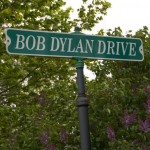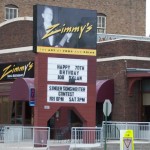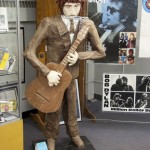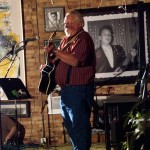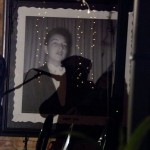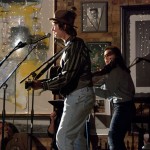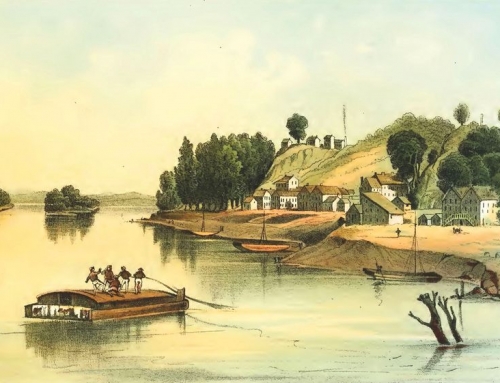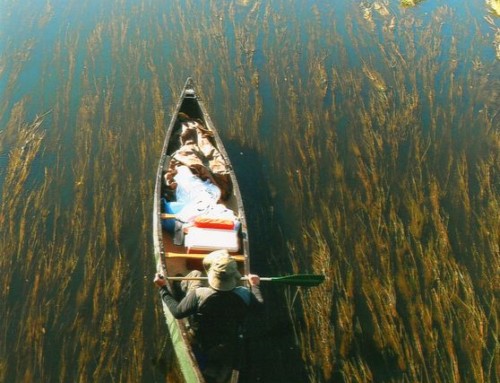On a Saturday night in June, the parlor of the restored Grand Rapids (Minnesota) house where little Judy Garland (nee Frances Ethel Gumm) spent the first four years of her life is draped with nostalgia. The parlor, decorated with period furniture, an upright piano, and a small gaggle of old queens and divas, is an atmospheric setting for a tribute to composer Hugh Martin, whose credits include Meet Me in St. Louis, possibly the worst musical ever made. One-by-one solemn audience members get up from their chairs to sing a sentimental song or read a maudlin tribute to Martin or Garland.
This is not what I expected. I had hoped for a lively cabaret filled with a healthy dose of self-parody but stumbled about a wake loaded with self-pity. Right now, Judy Garland Days is my choice for most disappointing festival. What I saw wasn’t very festive, although I might have felt somewhat differently if I hadn’t missed my chance to “mingle with a munchkin”, as the event with Wizard of Oz alum Karl Slover—now 93 years old—was billed, because I was on an airboat tour of the munchkin Mississippi.
Judy Garland Days had great potential for quirky fun, given Judy’s role in the classic movie with witches, monkeys, munchkins, and an ill-mannered tornado. Besides the movies, Judy’s troubled life (and those of her children) made her a cultural icon—especially to gay men of a certain age—and not just because she was pretty and looked fabulous in ruby red heels. Poking gentle fun at her life (and those of her children) was a way for a generation—especially gay men of a certain age—to master and transcend the tragedies in their own lives. And, if not, at least you could emulate Judy and look fabulous while everything around you was going to hell.
Back in the front parlor, the somber tribute to Martin continues. Each song is performed with the same weight as a eulogy. I was confused. Why the melancholy? Were folks trying to keep alive Judy’s memory or mourn an era long passed? If ever there was an event that was custom-made for some gentle satire, a little biting humor it is Judy Garland Days. It needs someone in Dorothy drag singing Clang, Clang, Clang Went the Trolley while wearing trolley earrings and trolley tracks for heels. The folks present on this evening, though, take the whole ceremony way too seriously to go there.
With any luck, I’ll be an old queen some day, and maybe my friends and I will gather in the parlor of the North Weald (England) home where David Gahan was born, singing 1980s Depeche Mode tunes. If we do, I’m sure we’ll also be trying to see who, in the spirit of the ‘80s, can sculpt the tallest hair or look most ridiculous in our old punk drag. I look forward to doing this and then mocking myself for the ridiculousness of the ‘80s, what we wore, and the fact that we sometimes get sentimental about it, because, after all, life moves forward and so should our appreciation of the past. Whether it’s someone from my generation trying to recapture the ‘80s or earlier generations reliving the ‘40s, old divas singing solemn old songs to other old divas is just a drag.
In contrast, Dylan Days in Hibbing throws a singer/songwriter contest that is a decidedly forward-looking celebration and much more fun, and not just because people were laughing and buying me drinks, although that didn’t hurt. The weekend draws Bob Dylan fans of all ages, many from out-of-town—Hibbing has been slow to warm up its hometown celebrity, too—who pay homage to Dylan’s legacy but without the grief.
Hibbing, in the heart of Minnesota’s Mesabi Iron Range, is an intriguing city that looks like a tough place to live, maybe because of the worn buildings or the giant open pit mine just outside of town or maybe because of the young folks who grow up dreaming of a job in the mines, instead of being poets or doctors or builders. Maybe that’s why young Robert Zimmerman moved away as soon as he could. There was no place for a poet/musician here.
So I came to Hibbing for Dylan Days even though—and this may be sacrilegious to admit—I’m not much of a Dylan fan. Never have been. I have a hard time getting past that voice. Yes, I’m shallow. I didn’t realize how much his voice affected me until I heard other singers cover his songs. Yes, it took the voices of other singers to help me appreciate the power and beauty in Dylan’s lyrics. Even with my limited fandom, though, I understand his place in the history of American music. I’m shallow, not ignorant. Aside from his gift for lyrics, the other great legacy of Dylan is that he inspired a lot of musicians to believe that they too could sing, which is not necessarily a good thing.
After visiting a few Dylan sites in Hibbing, I headed to Zimmy’s Bar and Grill, the unofficial Dylan headquarters, for the main event, the evening’s singer-songwriter contest. Folks arrived early to stake out a seat and nosh on the (bland) food at the dinner buffet. Based on my totally random and unscientific polling, few of the attendees were from Hibbing proper, although many were from other places in Minnesota. Many other folks were as much “not from around here” as me, including a few (very drunk) Canadians.
The walls of Zimmy’s are covered with Dylan photos, album shots, and other pieces of memorabilia; an elevated platform in a back corner served as the stage. Tables were packed in tightly together, making it tough for the wait staff to navigate to their customers. Around 8pm the emcee took the stage, a man whose name I forget and who was a lot less entertaining than he thought he was.
The musicians took the stage and played their sets with a photo of the young Robert Zimmerman looking over their shoulders, eager to test their singer-songwriter skills on an audience pre-disposed to like them. Each musician had to perform two songs: one written by Dylan and one original tune. Most musicians were good, some even notable, and the receptive crowd would ratchet up its enthusiasm when it connected with a performer.
The winning act, Helly and the Dazers, had traveled from England—Liverpool, like another English band that fared pretty well— but the performer to watch is talented 15-year old Luke Leblanc, aka Little Diamonds. He won the contest two years ago—at age 13!. At an age when his peers are focused on things like zits and Katy Perry’s tweets, Leblanc is writing original music for adult audiences and playing it with composure and passion. See his performance here. The music night at Dylan Days works because, unlike Judy Days, it encourages fans to honor the past but also nudges them to look ahead by creating something new.
NOTE (May 2015): Hibbing’s Dylan Days disbanded at the end of 2014, but many of the traditions will be carried on in Duluth’s Dylan celebration. Check out their website for details.
- Hibbing, Minnesota
- Dylan’s childhood home in Hibbing, Minnesota
- Dylan’s childhood home in Hibbing, Minnesota
- Zimmy’s Bar and Restaurant; Hibbing, Minnesota
- Dylan display at the library; Hibbing, Minnesota
- One of Dylan’s bandmates from the Golden Chords; Dylan Days; Hibbing, Minnesota
- A performer leaving a shadow on Dylan; Hibbing, Minnesota
- Little Diamonds; Dylan Days; Hibbing, Minnesota
© Dean Klinkenberg, 2011
